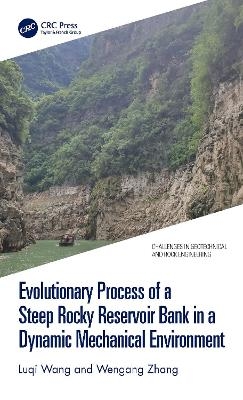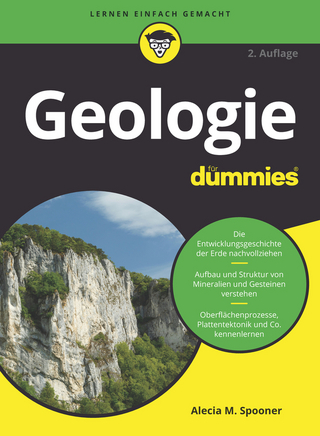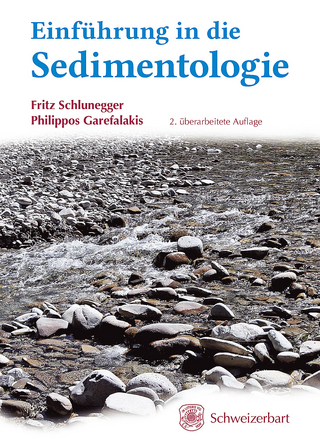
Evolutionary Process of a Steep Rocky Reservoir Bank in a Dynamic Mechanical Environment
Seiten
2024
CRC Press (Verlag)
978-1-032-38858-8 (ISBN)
CRC Press (Verlag)
978-1-032-38858-8 (ISBN)
- Lieferbar (Termin unbekannt)
- Versandkostenfrei innerhalb Deutschlands
- Auch auf Rechnung
- Verfügbarkeit in der Filiale vor Ort prüfen
- Artikel merken
This book details experiments on the evolution of a severely steep rocky reservoir bank, which consider the influence of hydraulic coupling, dry-wet cycles, axial pressure, and time-dependent effects. The results support a new method for determining the stability of dangerous rock masses on reservoir banks.
To prevent the collapse of dangerous rock masses on steep rocky reservoir banks which can cause casualties and property loss, it is essential to design and conduct practical experiments to quantify the evolution processes of the reservoir banks and control such dangerous rock masses.
Using the Jianchuandong Dangerous Rock Mass project as a case study, this book generalizes the mechanical model of the project to show how improved equipment can be used to measure the mechanical state transition under the continuous action of axial pressure. It details a series of experiments to study the evolution of a severely steep rocky reservoir bank, which comprehensively consider the influence of hydraulic coupling, dry-wet cycles, axial pressure, and time-dependent effects. The results support a new method for determining the stability of dangerous rock masses on reservoir banks.
Combines engineering principles, real data, experimental methods and results
Provides a complete research method for investigating hydrogeology failure processes
The book suits practitioners in hydropower engineering, engineering geology, and disaster protection.
To prevent the collapse of dangerous rock masses on steep rocky reservoir banks which can cause casualties and property loss, it is essential to design and conduct practical experiments to quantify the evolution processes of the reservoir banks and control such dangerous rock masses.
Using the Jianchuandong Dangerous Rock Mass project as a case study, this book generalizes the mechanical model of the project to show how improved equipment can be used to measure the mechanical state transition under the continuous action of axial pressure. It details a series of experiments to study the evolution of a severely steep rocky reservoir bank, which comprehensively consider the influence of hydraulic coupling, dry-wet cycles, axial pressure, and time-dependent effects. The results support a new method for determining the stability of dangerous rock masses on reservoir banks.
Combines engineering principles, real data, experimental methods and results
Provides a complete research method for investigating hydrogeology failure processes
The book suits practitioners in hydropower engineering, engineering geology, and disaster protection.
Luqi Wang is a researcher in the School of Civil Engineering, Chongqing University, China Wengang Zhang is a Professor in the School of Civil Engineering, Chongqing University, China.
1. Introduction. 2. Development of the mechanical model. 3. Establishment of the test environment. 4. Analysis of hydraulic coupling test. 5. Experimental research on the fluctuation of reservoir water level. 6. The evolution analysis and the treatment of JDRM. 7. Conclusions and outlook.
| Erscheinungsdatum | 13.11.2024 |
|---|---|
| Reihe/Serie | Challenges in Geotechnical and Rock Engineering |
| Zusatzinfo | 14 Tables, black and white; 51 Line drawings, color; 2 Line drawings, black and white; 24 Halftones, color; 75 Illustrations, color; 2 Illustrations, black and white |
| Verlagsort | London |
| Sprache | englisch |
| Maße | 156 x 234 mm |
| Themenwelt | Naturwissenschaften ► Geowissenschaften ► Geologie |
| Naturwissenschaften ► Geowissenschaften ► Hydrologie / Ozeanografie | |
| Technik ► Bauwesen | |
| ISBN-10 | 1-032-38858-7 / 1032388587 |
| ISBN-13 | 978-1-032-38858-8 / 9781032388588 |
| Zustand | Neuware |
| Haben Sie eine Frage zum Produkt? |
Mehr entdecken
aus dem Bereich
aus dem Bereich


